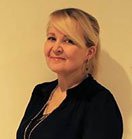
Turku UAS reduces its carbon footprint in procurements
The new low-carbon procurement policy aims to achieve the lowest possible emission-free procurement.
Turku UAS aims to be carbon neutral by 2025. Low-carbon and zero-emission procurements are one tool to achieve this goal.
Emissions from acquisitions account for 60% of the carbon footprint
The carbon footprint of Turku University of Applied Sciences is calculated annually in accordance with the common calculator for all universities of applied sciences. According to the calculation, emissions are generated from properties and travel, but a significant share of the emissions are the result of acquired goods and services.
– For example, in 2021 and 2022, the emissions caused by our procurements amounted to up to 60% of the total carbon footprint of Turku UAS. These emissions consist of e.g. equipment, equipment and furniture purchases, catering purchases and chemical purchases. Procurement refers to all goods and services that we buy outside our organisation, describes Ulla-Maija Lakka, Director of Finance and Administration.
Low-carbon public procurement
Low-carbon public procurements refer to public service and goods procurements and building contracts which produce the lowest possible amount of greenhouse gas emissions during their life cycle. They can be implemented by directly procuring a low-emission solution from the market or by setting criteria which promote a low level of emissions in the competitive tendering process.
Turku UAS's new low-carbon procurement policy aims to reduce carbon emissions. In the future, Turku UAS will, where possible, favour the most low-emission products and services and aim to extend the lifespan of the acquired goods by, for example, requiring the possibility of repair or setting longer warranty periods. If the period of use of the goods is short, renting instead of buying is considered.
Making low-carbon purchases also requires expertise. Turku UAS strengthens its expertise by participating in the Academy of Low Carbon Procurement organised by KEINO. A multi-disciplinary team of 10 people from all over the organisation participates in the Academy.
– We will identify the procurement categories that will reduce emissions the most. The consideration must take into account the purchasing volume, the carbon emission reduction potential and our ability to influence the procurement. Measuring and monitoring the change we have made is also important, says Senior Advisor Sonja Lankiniemi.
In addition to reducing the carbon footprint of procurements, Turku UAS is involved in producing new information related to sustainable procurements in research and development projects.

